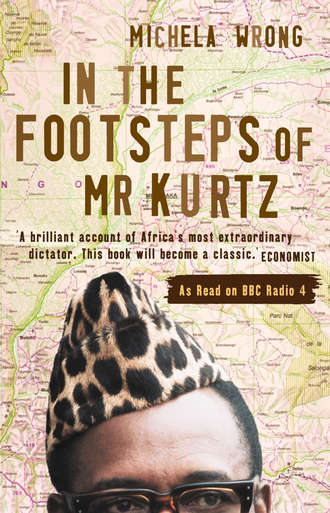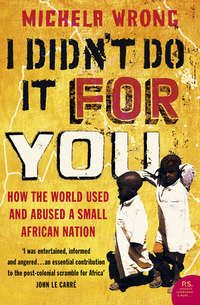
Полная версия
In the Footsteps of Mr Kurtz: Living on the Brink of Disaster in the Congo
Not for him the rigid stances that had doomed Lumumba. He would dither for days, leaving his collaborators in a state of nervous ambiguity, often uncertain over what instructions had actually been issued. This was the negative side of his adaptability. But while colleagues tried to second-guess his wishes, he would be assessing the mood of the day, ready to change direction with all the panache of a born actor. ‘He was very good at putting on a show,’ acknowledged a contemporary. ‘He could be absolutely furious and two minutes later, when he saw it wasn’t the right thing to do, he’d change completely.’
And finally, there was the humour: sardonic, worldly wise, it deepened as the years turned against him until, listening to Mobutu fielding questions about human rights and corruption at a hostile press conference in Biarritz, it was difficult not to feel a certain grudging admiration for the impeccable politeness, the fake innocence, the ironic demeanour that all broadcast one defiant message: I know your game and I am far too old and wily a fox to be caught out.
This was the man who seized control of Congo in September 1960. He was to prove as good as his word, swiftly handing power to a group of ‘general commissioners’ – a collection of the country’s few university graduates – who were supposed to run the country while the politicians took stock of the problems confronting Congo. With four separate governments in existence – one in the eastern city of Stanleyville, loyal to the ousted Lumumba; one in Katanga under Moise Tshombe, supported by the Belgians; one in Kasai under Albert Kalonji; and one in Leopoldville under President Kasavubu – national partition was now a reality rather than a threat. But the disappearance of probably the key player in this game was about to alter the situation.
In the space of a couple of months, Lumumba had managed to outrage the Belgians by insulting their king, appal the West with his flirtation with Moscow and alienate the United Nations. He had also frightened former colleagues by hatching a series of cack-handed assassination plots against his Congolese rivals. With Mobutu in charge, Lumumba was now in detention, but his Napoleon-like ability to whip up the crowds and convert waverers to his cause – even at times his own jailers – meant he remained a dangerous loose cannon.
Конец ознакомительного фрагмента.
Текст предоставлен ООО «ЛитРес».
Прочитайте эту книгу целиком, купив полную легальную версию на ЛитРес.
Безопасно оплатить книгу можно банковской картой Visa, MasterCard, Maestro, со счета мобильного телефона, с платежного терминала, в салоне МТС или Связной, через PayPal, WebMoney, Яндекс.Деньги, QIWI Кошелек, бонусными картами или другим удобным Вам способом.





